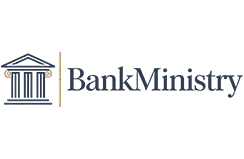Choosing the right bank account is important for managing your finances. There are many options available, so it’s important to make sure the account you choose fits your lifestyle and financial goals. Whether you’re saving for future goals, paying for everyday expenses, or building an emergency fund, your bank account can have a positive or negative impact on your financial progress.
Understand your financial goals
Understand how you want to use your money to achieve your goals. This is the first and most important step in choosing the right bank account. Are you looking for a way to track your daily expenses? Or do you want to save more money over time? Maybe you’re planning for a major life event, such as buying a home or moving out early. The type of account that’s best for you depends on your financial goals. For example, if you need money regularly to cover your daily needs, a bank account might be the best option. If you’re saving for the future, a savings account or a high-yield savings account might be a better choice for you.
Learn about the different types of bank accounts
There are many different types of bank accounts, each with its own purpose. People typically use checking accounts for their day-to-day finances, such as paying bills, withdrawing money, and making purchases. These accounts give you easy access to your money, but they usually earn little to no interest. On the other hand, savings accounts allow you to save money for later. These accounts usually earn interest, but you can only make a limited number of transfers per month.
High-yield savings accounts (often offered by online banks) can help your money grow faster because you earn more interest on them. Money market accounts offer interest, but you can write fewer checks with them. They are a combination of a checking account and a savings account. A certificate of deposit (CD) is a way to save money that is locked up for a certain term and has a fixed interest rate. They are great for long-term spending, but you cannot access your money until the term is up or you have to pay fees.
Check out the fees and requirements
Bank accounts often have fees and regulations that can negatively impact your financial situation. Some banks charge monthly maintenance fees, overdraft fees, ATM fees, or require you to maintain a certain minimum balance to avoid fees. It is important to read the terms and conditions carefully and understand what fees may be charged on your account. If you are just starting out or have a small amount in your account, look for a bank that does not charge fees or require a minimum balance in your account.
Check the annual percentage rate (APY) and interest rate
Interest rates are very important if you want to grow your savings. When you add up all the interest you earn in a year, the annual percentage yield (APY) tells you how much money you will ultimately earn. Because online banks charge lower fees, their annual interest rates are usually higher than those of regular banks. It is important to compare interest rates before making a decision. Even a small change in your annual rate can have a big effect on your savings in the long run.
Think convenience and comfort
In today’s fast-paced world, convenience and ease of use are important factors when choosing a bank account. Some people prefer to manage their money online or through mobile apps, while others prefer to go to a physical store. If you move often or live in a remote area, it’s important to make sure your bank has a good ATM network or doesn’t charge high fees to use an ATM when you’re out of network. When choosing a bank, consider how easy it is to send and receive payments, how helpful their customer service is, and how accessible they are to digital tools.
Learn more about customer service and banking technology
A bank’s digital tools and customer service can significantly enhance your experience. Choose a bank with responsive and helpful customer service. Many banks offer 24/7 support via chat, phone, or mobile apps. Keep track of your finances with quality mobile apps that let you do things like make payroll, receive real-time notifications, and track your spending, all from your phone. If the banking app or website you use is well-designed, you’ll save time and gain peace of mind.
Check if the bank is safe and secure
Very useful ng tool. With a premium account, you may get extra benefits, such as interest on bank deposits or a free checking account. Couples or families who have the same expenses can use a joint account to keep track of their expenses. Business owners and freelancers can benefit from a business bank account so that they can keep their personal and business finances separate. By tailoring your account to your current situation, you can make things easier and gain more benefits.
Check out the different deals and offers
To attract new users, many banks offer benefits such as sign-up bonuses or high short-term interest rates. These offers may be interesting to you, but they should not be the only factor in your choice of bank. Make sure you know what you have to do to receive the bonus. For example, make a certain number of direct transfers or always keep a certain amount of money in your account. Sometimes these deals have conditions that do not fit within your budget.
Check your banking regularly
Over time, your money can change. As your income increases, your spending patterns change, or your lifestyle changes, your bank account may no longer meet your needs. Make it a habit to reevaluate your account settings once a year to ensure you’re still getting the best rates, lowest fees, and most user-friendly features. Switching funds or banks may seem like a hassle in the short term, but it can be very beneficial in the long run.
In Summary
When choosing the right bank account, don’t just pick the first one that comes to mind. This choice can impact how you manage, grow, and protect your money in the long run. Understand what you want, learn about the different types of accounts, and compare their features. Then choose an account that fits your lifestyle and financial goals. A good bank account can not only keep you organized, it can also give you greater financial freedom and peace of mind.




